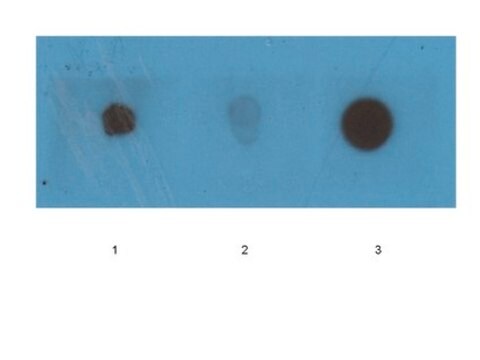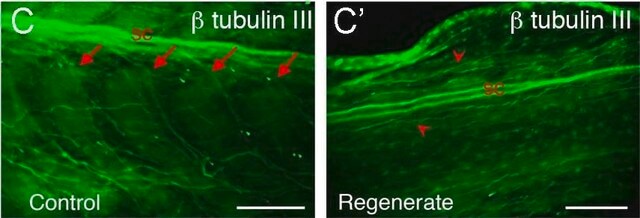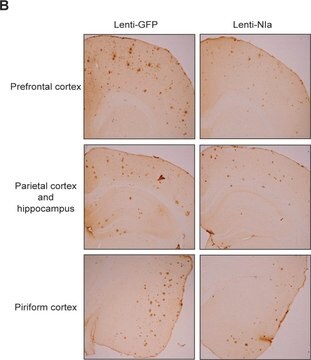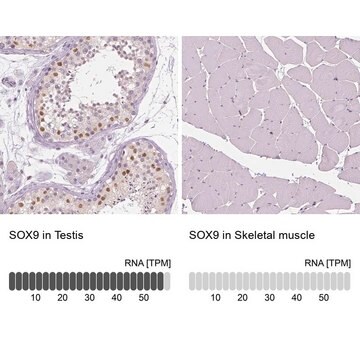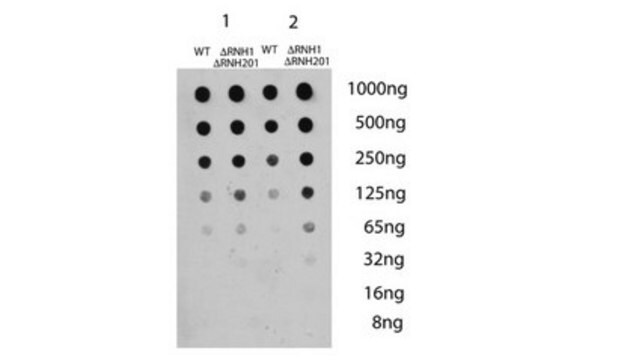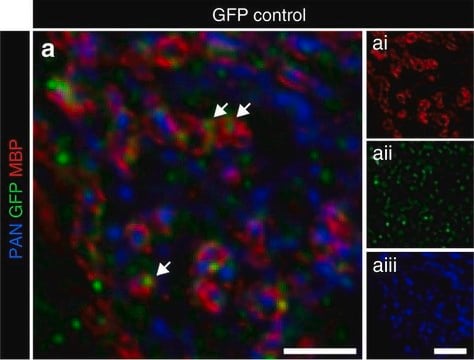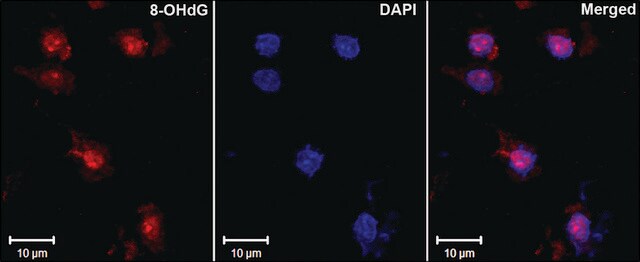MABN2620
Anti-Myelin Proteolipid Protein Antibody
Synonym(s):
Anti-GPM6C, Anti-HLD1, Anti-MMPL, Anti-PLP, Anti-PLP/DM20, Anti-PMD, Anti-SPG2
About This Item
Recommended Products
biological source
rat
Quality Level
conjugate
unconjugated
antibody form
purified antibody
antibody product type
primary antibodies
clone
AA3, monoclonal
mol wt
calculated mol wt 30.02 kDa
observed mol wt ~17 kDa
species reactivity
human, mouse, rat
species reactivity (predicted by homology)
bovine
packaging
antibody small pack of 100 μg
technique(s)
immunocytochemistry: suitable
immunohistochemistry (formalin-fixed, paraffin-embedded sections): suitable
immunoprecipitation (IP): suitable
western blot: suitable
isotype
IgG2bκ
UniProt accession no.
shipped in
dry ice
storage temp.
2-8°C
target post-translational modification
unmodified
Gene Information
bovine ... PLP1(281410)
General description
Specificity
Immunogen
Application
Evaluated by Western Blotting in SH-SY5Y cell lysate.
Western Blotting Analysis: A 1:1,000 dilution of this antibody detected Myelin Proteolipid Protein in SH-SY5Y cell lysate.
Tested Applications
Western Blotting Analysis: A 1:1,000 dilution from a representative lot detected Myelin Proteolipid Protein in HepG2 cell lysate.
Immunohistochemistry (Paraffin) Analysis: A 1:50 dilution from a representative lot detected Myelin Proteolipid Protein in human cerebral cortex and human cerebellum tissue sections.
Immunoprecipitation Analysis: A representative lot immunoprecipitated Myelin Proteolipid Protein in Immunoprecipitation applications (Gudz, T.I., et. al. (2006). J Neurosci. 26(9):2458-66).
ELISA Analysis: A representative lot detected Myelin Proteolipid Protein in ELISA applications (Yamamura, T., et. al. (1991). J Neurochem. 57(5):1671-80).
Immunohistochemistry Applications: A representative lot detected Myelin Proteolipid Protein in Immunohistochemistry applications ( Gudz, T.I., et. al. (2006). J Neurosci. 26(9):2458-66; Sarret, C., et. al. (2010). Neuroscience. 166(2):522-38).
Western Blotting Analysis: A representative lot detected Myelin Proteolipid Protein in Western Blotting applications (Zhu, H., et. al. (2012). Glia. 60(1):69-82).
Immunocytochemistry Analysis: A representative lot detected Myelin Proteolipid Protein in Immunocytochemistry applications (Sarret, C., et. al. (2010). Neuroscience. 166(2):522-38).
Note: Actual optimal working dilutions must be determined by end user as specimens, and experimental conditions may vary with the end user
Physical form
Storage and Stability
Other Notes
Disclaimer
Not finding the right product?
Try our Product Selector Tool.
Storage Class Code
12 - Non Combustible Liquids
WGK
WGK 1
Flash Point(F)
Not applicable
Flash Point(C)
Not applicable
Regulatory Listings
Regulatory Listings are mainly provided for chemical products. Only limited information can be provided here for non-chemical products. No entry means none of the components are listed. It is the user’s obligation to ensure the safe and legal use of the product.
JAN Code
MABN2620-100UG:
MABN2620-25UG:
Certificates of Analysis (COA)
Search for Certificates of Analysis (COA) by entering the products Lot/Batch Number. Lot and Batch Numbers can be found on a product’s label following the words ‘Lot’ or ‘Batch’.
Already Own This Product?
Find documentation for the products that you have recently purchased in the Document Library.
Our team of scientists has experience in all areas of research including Life Science, Material Science, Chemical Synthesis, Chromatography, Analytical and many others.
Contact Technical Service